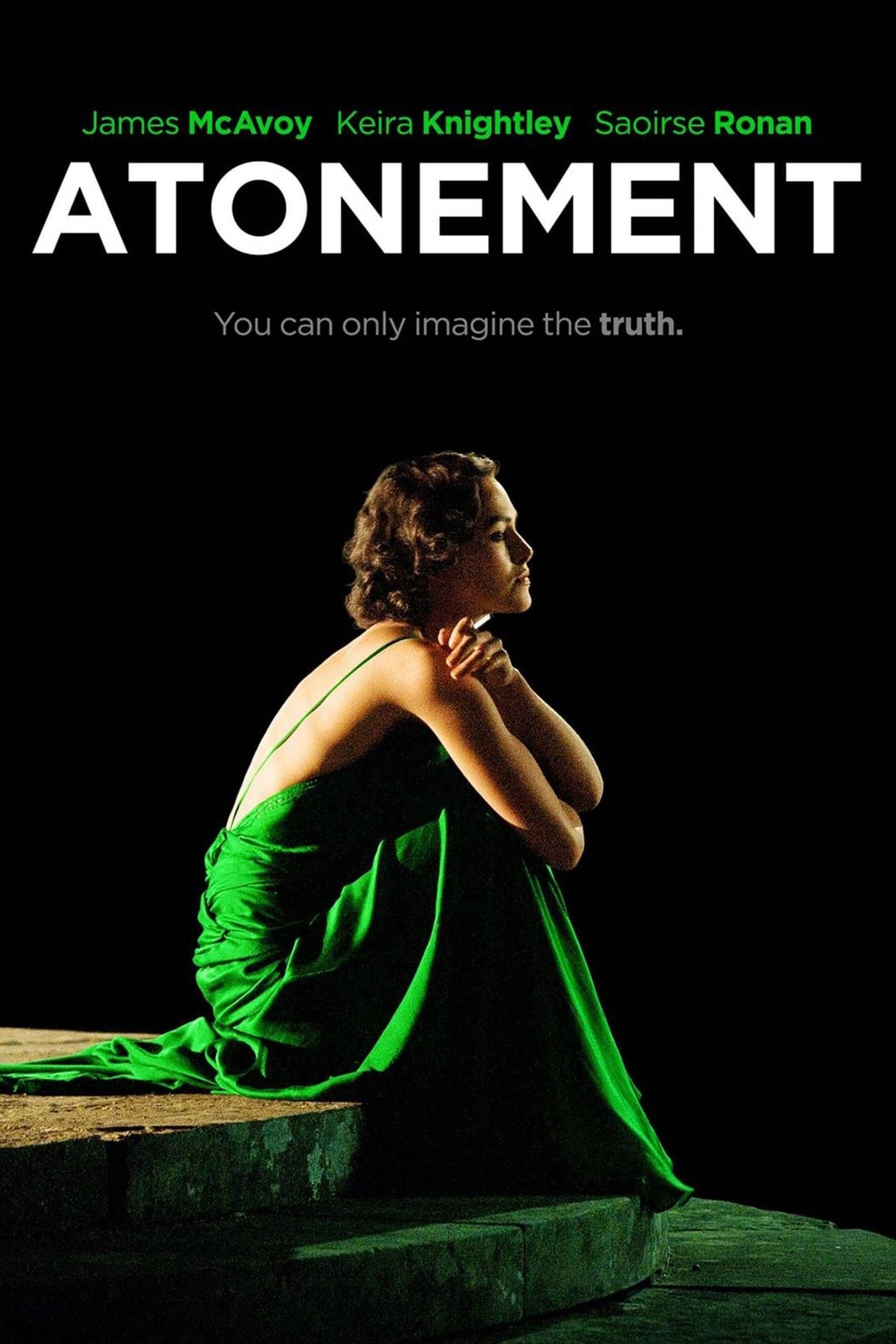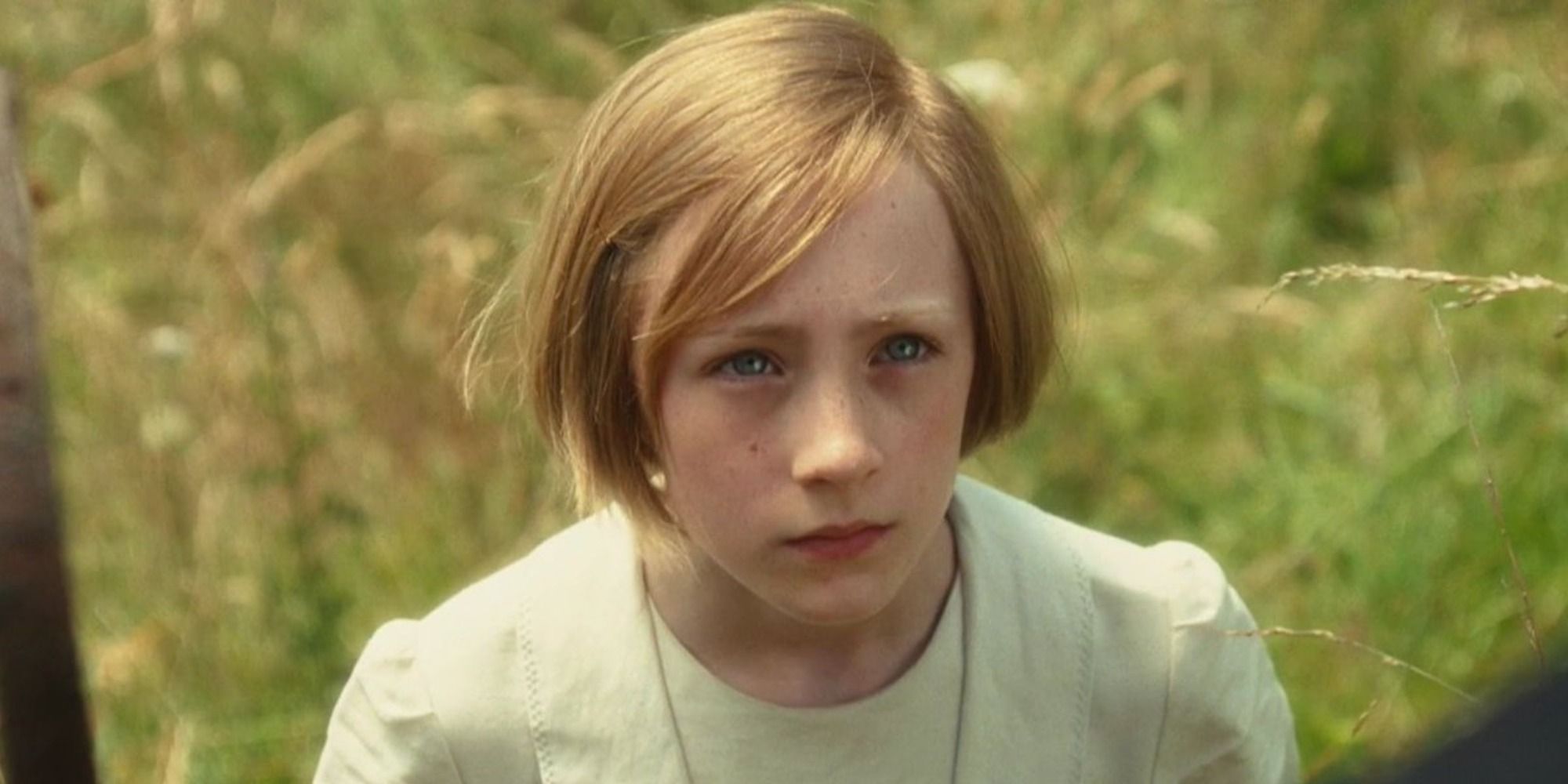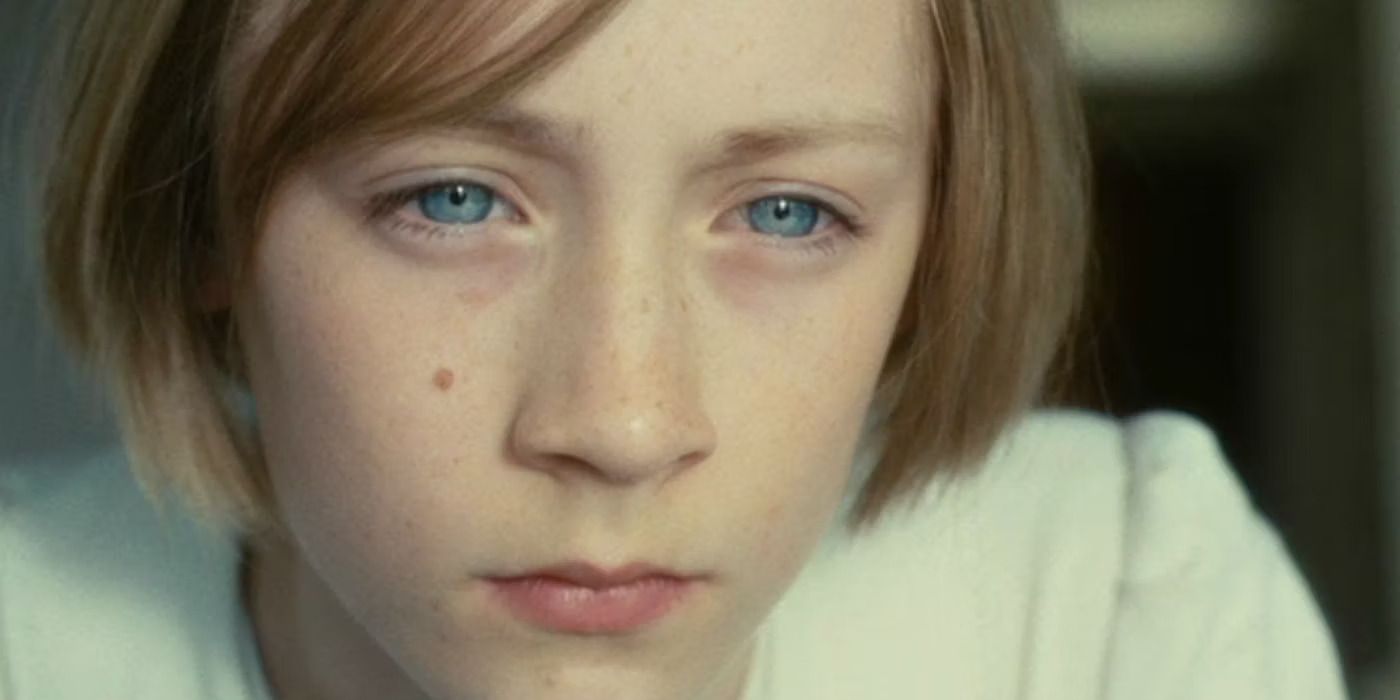The Big Picture
- Saoirse Ronan's nuanced portrayal of Briony Tallis in Atonement captures the complexity of a character torn between ambition and guilt.
- Ronan's performance highlights the fine line between youthful innocence and destructive actions, adding layers to the film's narrative.
- The film's exploration of childhood mistakes and their lasting impact is brought to life by Ronan's portrayal of the flawed character.
Of the many prominent actresses we currently have, few have the ability to overpower a character's flaws with their natural intrigue, like Saoirse Ronan. She's had a career defined by a hiding-in-plain-sight quality, creating a gap between her exterior display and her interior truth that makes us want to lean forward and decipher what she's really thinking. It's a quality that has granted her an elasticity in her roles, able to perfectly embody as wide a spectrum as a coldly engineered killing machine in Hanna and the delightfully prickly title character Lady Bird. This breadth of options has led her to garnering four Academy Award nominations, and her first nomination was for the role that immediately vaulted her into the realm of somebody the industry needed to pay attention to. In a cast that already had Keira Knightley and James McAvoy as its leads, Ronan was the person who truly stole everyone's fascination in Atonement.

Atonement
- Release Date
- September 7, 2007
- Director
- joe wright
- Cast
- Saoirse Ronan , Ailidh Mackay , Brenda Blethyn , Julia West , James McAvoy , Harriet Walter
- Runtime
- 123
- Main Genre
- Drama
Briony Tallis Is A Tragic Figure
Briony Tallis (Ronan) is a watcher, someone who is always alert and scanning her surroundings for material. Like all writers, she knows the value of looking in the right places and carries herself like she's manifesting her future Pulitzer Prize in real time. Whether she's as good an author as she believes herself to be is up for debate, but the precocity and eager pride with which she asserts her literary ambition belies her delusions of grandeur, tied to her conception as the self-proclaimed "director" of her life. The tragedy of Briony lies in how she looks at everything around her, yet perceives very little, and how that lack of perception dooms not only herself, but the people she claims to love most. She has spent her sheltered life enjoying domestic privileged bliss with her older sister Cecilia (Knightley), and secretly in love with Robbie (McAvoy). It's just too bad that Robbie and Cecilia are in love with each other, a fact that Briony is made aware of in the worst way, when Robbie accidentally gives her a slip of erotica he wrote for Cecilia, instead of the more proper invitation he'd also written. That gives Briony's imagination all the information needed to spin a web, ensnaring all three of them for the rest of time.
Many of the actions that Briony takes, and the fallout of those actions, would seem to qualify her as an "evil child" trope, in the vein of films like The Bad Seed or The Omen. Those kinds of children tend to be practically born in a lab to be bad, playing on the adult audience's fear and disconnection from their youth. Here, Briony isn't so much wholly evil as much as she's blind to the nuances of adult interpersonal behavior, not just due to her being raised in this insanely privileged lifestyle, but also thanks to her preferring to be secluded from the world outside the context of fictional exploration. She'd much rather sequester herself away in her room or in her own secret garden within the green expanse of her family's manor. Unless she's forcing her siblings to take part in her newest play or eagerly awaiting feedback on her freshly written stories, she doesn't have much drive to engage with the people around her on a human level. She's not a master manipulator, but she's a child who treats people in her life as characters rather than real people, indicated by how she's constantly watching them from a great distance, as if on a screen.
Saoirse Ronan Makes Briony Elusive And Vulnerable
Saoirse Ronan's performance as Briony is fascinating, largely due to how you can never truly tell what's going on behind her eyes. Despite the cinematography emphasizing how arresting her gaze is, there's an opacity to them that is bewildering. Her eyes give nothing away as to what her true motivations are, only showing us how alert she is to the proceedings at hand. There are times her face communicates more than her eyes, making a misalignment of expression that forces the audience to be more questioning of her intent. This plays into the story's themes of not truly knowing the inner makings of other people. Briony is at a formative phase when she's coming-of-age and piecing together who she truly is, and we see her internally readjusting herself in real time to the reactions she gets. For instance, when Robbie angrily calls her a "stupid child" after rescuing her from falling into a river, she has to sorrowfully withhold all of her romantic yearning as she thanks him for saving her life. At this moment, Briony realizes Robbie doesn't view her the same way she views him. Additionally, when she's officially making the accusation against him that will ruin both of their lives, you can see her convince herself of its legitimacy the longer she's insisting it to the authorities. These shifting tides roiling beneath her placid demeanor make for some of Ronan's strongest moments, hinting towards the uncertain girl she is at her core.
This unacknowledged vulnerability on Briony's behalf is what Ronan anchors her performance around, making her more empathetic as an engine of ruin. As much as Briony wants to be a master storyteller in control of her faculties, she's ultimately a petty child with good intentions who misuses her emotions out of spite. When she expresses her consternation that Robbie might be a "sex maniac" after reading his erotic letter, her concern for the well-being of those around her seems genuine, and she tries her best to deal with it tactfully. When she walks in on Cecilia and Robbie having sex in the library, she's deeply heartbroken as her perfect golden world slowly shatters. Even when Robbie is arrested and being led away, we see Briony watching over him through a window with perhaps her most ambiguous glare yet. She could be paralyzed at realizing the consequences of her actions, relishing the victory of Robbie getting the justice she thinks he deserves, or she could just be absorbing the information for her future story. It's the uncomfortable plausibility that all of these might be true that speaks to the power that Saoirse Ronan holds in her silence.
Saoirse Ronan's Performance Makes the Film Work
While Ronan's performance as young Briony isn't as demonstrative or on-screen for as long as you'd think, her work does bring the film together and sells you on its overarching thesis. For the rest of the movie, we see Briony as an older woman, played by Romola Garai and Vanessa Redgrave, respectively, as she learns to grapple with the consequences of her betrayal later in life. The story's evolution and grand conclusion wrestle with the conundrum of how Briony truly feels reflecting on what she did, how that guilt has never left her and has single-handedly shaped every life choice she's made since then.
Worse yet, as underlined by Redgrave's stunning cameo, the film flips back around onto Briony, revealing how empty and self-serving all of her actions have been, despite her best intentions. Saoirse Ronan's performance lays bare the contradictions of being a child who's unfairly forced to confront the icky parts of adulthood at such a young age. She uses her crystal clear eyes to drag you into the mud to wallow in the long-delayed soul decay of a self-made martyr internally crying for pity, which is a mighty weight to put on the shoulders of an unknown 13-year-old actress who would continue to make good on her promise to this day.
Atonement is streaming on Prime Video in the U.S.


